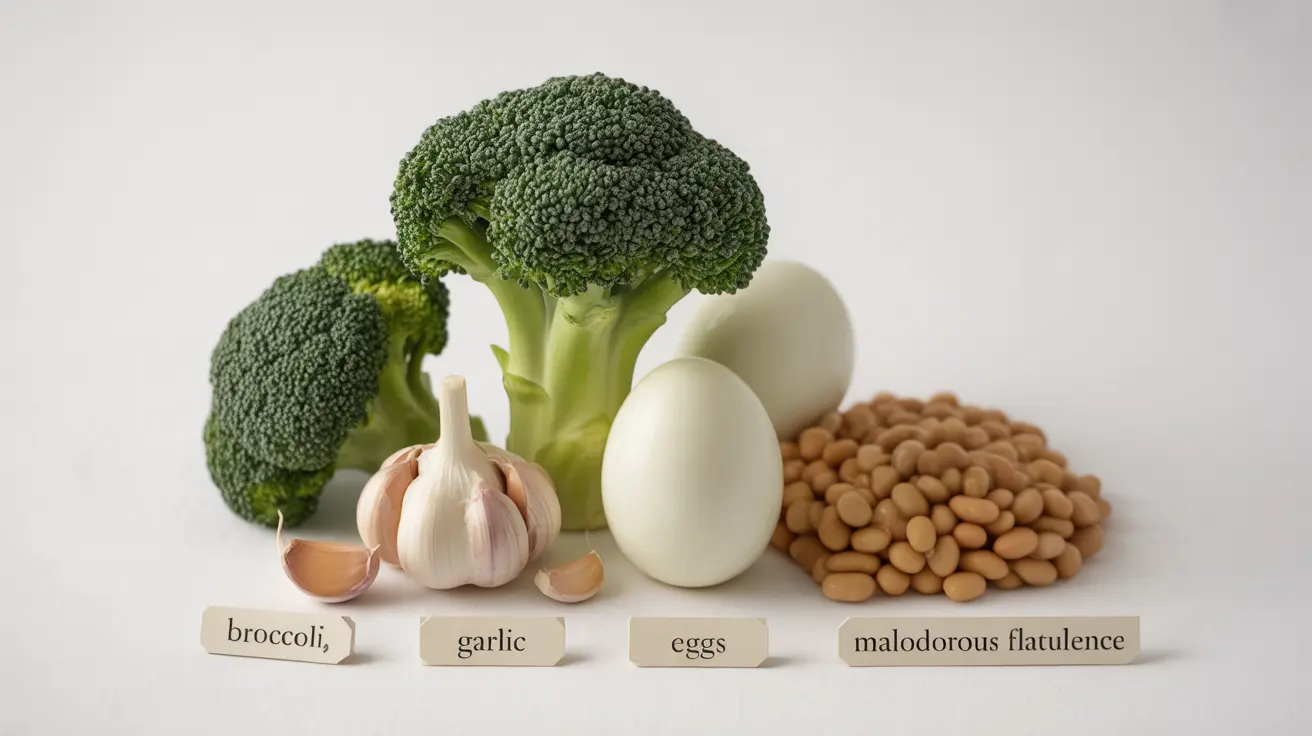Everyone experiences gas and flatulence, but when your farts become particularly malodorous, it's natural to wonder about the cause. Understanding why your farts smell bad can help you identify potential dietary triggers, underlying health conditions, or lifestyle factors that may need attention.
While passing gas is a normal bodily function, excessive or unusually foul-smelling flatulence might indicate something that requires dietary modifications or medical attention. Let's explore the various causes and solutions for particularly smelly gas.
Common Dietary Causes of Smelly Gas
The foods we eat play a significant role in determining how our gas smells. Certain foods are more likely to produce sulfur-containing compounds during digestion, leading to more pungent-smelling farts.
High-Sulfur Foods
Several healthy foods naturally contain high levels of sulfur, which can contribute to smelly gas:
- Cruciferous vegetables (broccoli, cauliflower, cabbage)
- Garlic and onions
- Eggs
- Meat products
- Legumes and beans
Protein-Rich Foods
When protein isn't fully digested, it can create hydrogen sulfide gas during breakdown in the large intestine, resulting in particularly foul-smelling flatulence.
Medical Conditions That Cause Smelly Gas
Sometimes, unusually smelly farts can indicate an underlying health condition that needs attention. Common medical causes include:
Digestive Disorders
Several digestive conditions can lead to malodorous gas:
- Lactose intolerance
- Celiac disease
- Inflammatory bowel disease (IBD)
- Small intestinal bacterial overgrowth (SIBO)
Food Sensitivities
Undiagnosed food intolerances or sensitivities can cause not only excessive gas but also particularly foul-smelling flatulence. Common culprits include dairy products and gluten-containing foods.
Managing and Reducing Smelly Gas
There are several effective strategies for reducing the occurrence and intensity of smelly farts:
Dietary Modifications
- Keep a food diary to identify trigger foods
- Gradually increase fiber intake to prevent digestive issues
- Eat slowly and chew thoroughly
- Stay hydrated throughout the day
Lifestyle Changes
Simple adjustments to daily habits can help reduce problematic gas:
- Regular exercise to promote healthy digestion
- Avoiding carbonated beverages
- Limiting artificial sweeteners
- Managing stress levels
Frequently Asked Questions
What foods cause farts to smell worse and why?
Foods high in sulfur compounds, such as cruciferous vegetables, eggs, meat, and legumes, typically cause worse-smelling farts. These foods release sulfur-containing gases during digestion, leading to more pungent odors.
Can lactose intolerance or gluten sensitivity cause smelly farts?
Yes, both conditions can cause particularly smelly gas. When people with these sensitivities consume dairy or gluten, their bodies cannot properly digest these substances, leading to fermentation in the gut and production of foul-smelling gases.
When should I be concerned about smelly farts and see a doctor?
Consult a healthcare provider if you experience persistent, extremely foul-smelling gas along with other symptoms like severe abdominal pain, significant changes in bowel habits, unexplained weight loss, or blood in stools.
How can I reduce bad-smelling gas through diet and lifestyle changes?
You can reduce smelly gas by identifying and limiting trigger foods, eating slowly, staying hydrated, exercising regularly, and maintaining good digestive health through a balanced diet rich in fiber and probiotics.
Do medications like antibiotics make your farts smell bad?
Yes, antibiotics can alter your gut bacteria balance, potentially leading to changes in gas odor. These medications can kill both harmful and beneficial bacteria, disrupting normal digestive processes and potentially causing more pungent-smelling gas.




